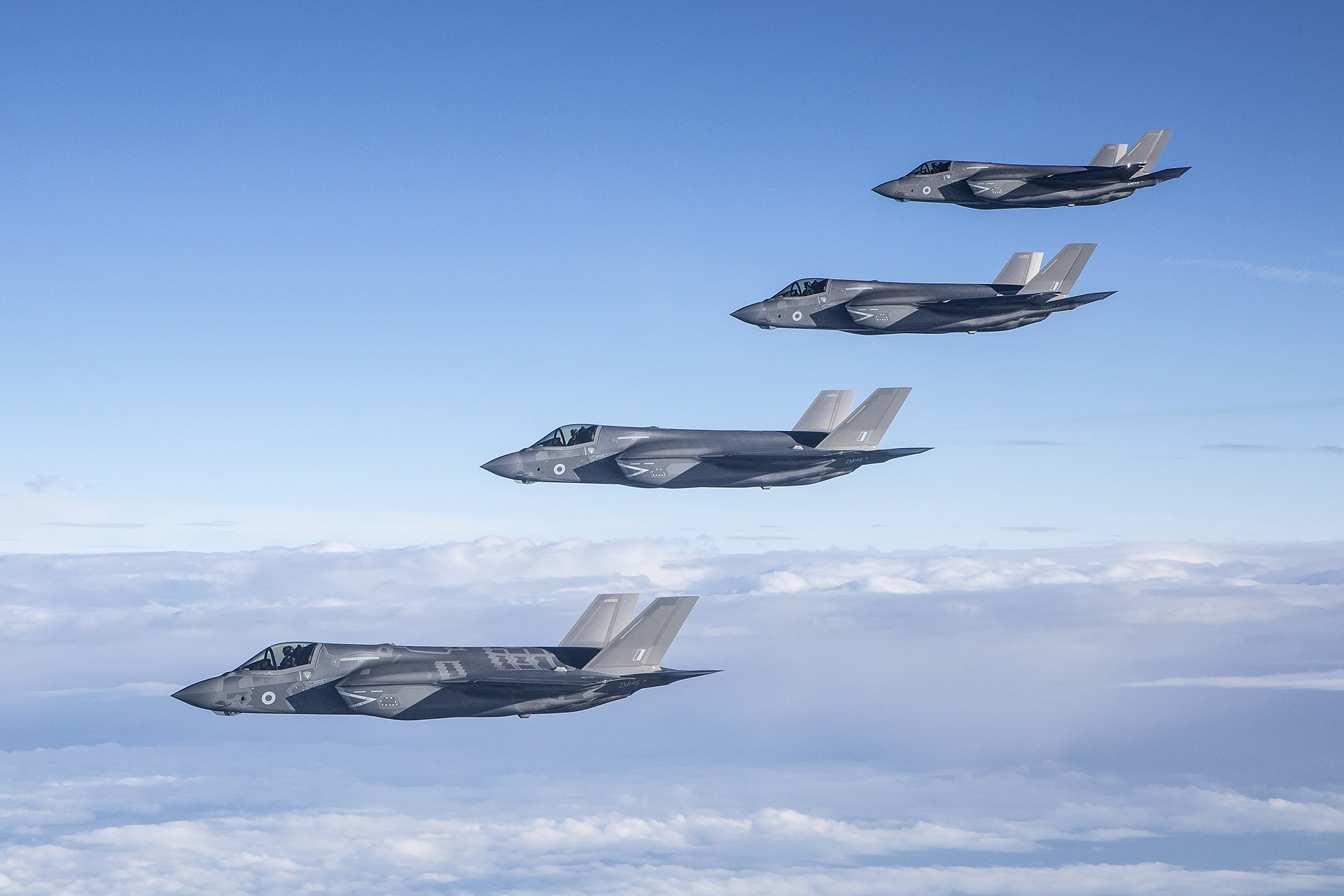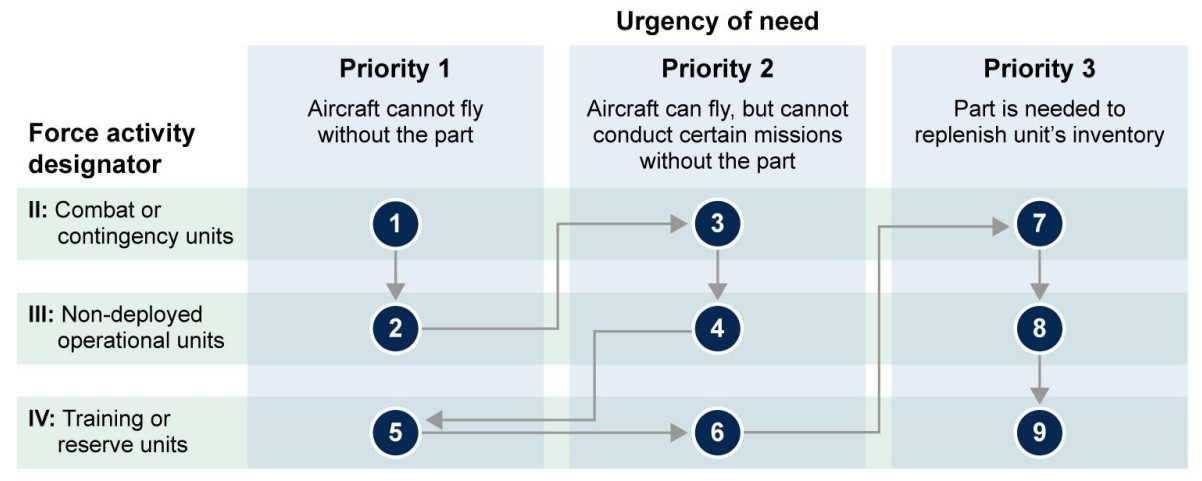Why the UK is forced to send F-35 parts to Israel

TLDR: We are forced to send F-35 spare parts to Israel until 2051. There's almost nothing we can do about it.
I fell down this rabbit hole because I wanted to understand why the UK government seems to be bending over backwards to support what has become a seriously unpopular foreign policy in the UK, and that's putting it mildly. Why is the UK government incapable of suspending deliveries of UK made F-35 spare parts to Israel?
The answer appears to be because there is nothing we can do about it. At least unless America changes its position. From what I'm able to tell, this is partly due to a lack of foresight on our part but also because of cost savings.
Introduced to help manage the global supply chain of spare parts for the F-35, Rule 34 of the Joint Executive Steering Board (JESB) for the F-35 Lightning II project appears to imply the following:
If Israeli F-35s are bombing Gaza and break down, the UK is obligated to send spare parts
Not only do we have to send parts, Israeli jets have priority over our own when ours are not also in combat. It is too late to withdraw from this arrangement without the unanimous agreement of JESB. The only alternative is unilaterally leaving the F-35 partner programme with catastrophic consequences for the UK defence industry.
Autonomy?
We appear to have given up a massive amount of strategic autonomy to the US. The real lunacy of this arrangement is that it doesn't just force us to deliver spares to Israeli jets, but to any nations's jets that the US authorises sales to, until 2051.
The kicker is that while the US agrees to consult the members of the JESB on potential 3rd party customers, none of them have a veto. In effect, we have given up the power to decide who not to sell our F-35 spares to. In the hypothetical future where America decided to sell F-35s to Russia, we would be forced to send spares, more so when they are in combat.
How did we get here?
- In 2006, we (the 9 development partners: US, UK, Italy, Netherlands, Australia, Canada, Norway, Denmark and
Turkey) signed the Production, Sustainment & Follow-on-Development (PSFD) Memorandum of Understanding to create the JESB and allow it to issue business rules binding on all partners unless they formally withdrew. This expires in 2051 but an extension is expected. The MoU explicitly says that the US get's the final say on who they are allowed to export to and only agree to consult the other members beforehand. - In 2012, the JESB agreed to adopt a Global Support solution with one pooled parts system for the global fleet. Members could opt-out but only if they funded their own inventory.
- However, in 2013, a set of 40 Global Pooling Business Rules were passed by the JESB. They have never been published in full but have been referred to in legal documents and reports.
Removing the opt-out and Rule #34
While I couldn't pin down exactly when the ability for members to opt-out of the global pool was removed, the UK high court recently ruled that the UK could continue to export spares into the global pool and found the following:
Based on closed evidence, the court accepted “that there was no realistic possibility of persuading all other partner nations that F-35 exports to Israel should be suspended” (para 180). As such, the only alternative to the F-35 carve out was complete withdrawal from the programme with damaging defence and diplomatic consequences. [verfassungsblog.de]
My guess is that the 2013 Business Rules also did away with the opt-out without too much fuss. A report to a house of representatives committee briefly mentioned Rule #34, which may indeed have been the rule to close the opt-out:
Rule #34 (Global Pooling Business Rules) establishes a common mechanism for allocation and prioritisation of limited resources via assignment of Force Activity Designation (FAD) Codes when scarcity of parts exists [From the US house of representatives Armed Services Committee]
While almost nothing is known about the rest of the Business Rules, the United States Government Accountability Office (GAO) released a report on F-35 sustainment which mentions Rule #34 and the FAD codes. One interesting bit of information they do mention is that
All of the parts within the global spares pool are owned by the U.S. government when not installed on a participant’s aircraft.
I imagine if we ever showed signs of trying to leave the F-35 programme, the first thing the US would do is move all of the spare parts not installed in the UK back the the US and there would be little we could do.
Parts Precedence for jets on combat missions
The GAO also included a diagram showing how the precedence in which jets in the global fleet of F-35s receive spare parts.

According to the FAD codes, we have agreed to prioritise Israeli jets on combat missions over our own when allocating spare parts. While this makes sense from a purely utilitarian point of view, the fact that bombing civilians gives a higher priority for spare parts from a nation which wants little to do with it is perverse.
Final thoughts
For the next couple of decades it seems we will be complicit in whatever war crimes F-35 customers commit and there's basically nothing we can do about it short of crippling ourselves. One question I'd like answered is what did we get for giving this capability up? I hope the answer is not nothing. The cynical part of me thinks otherwise. If the people making the decisions on our part realised the cost to our strategic autonomy, they probably wouldn't have agreed to give it up in the first place.
This debacle is just another example of how little truly independent power the UK can wield and how we follow the lead of the Americans not because we want to, but because we have to.